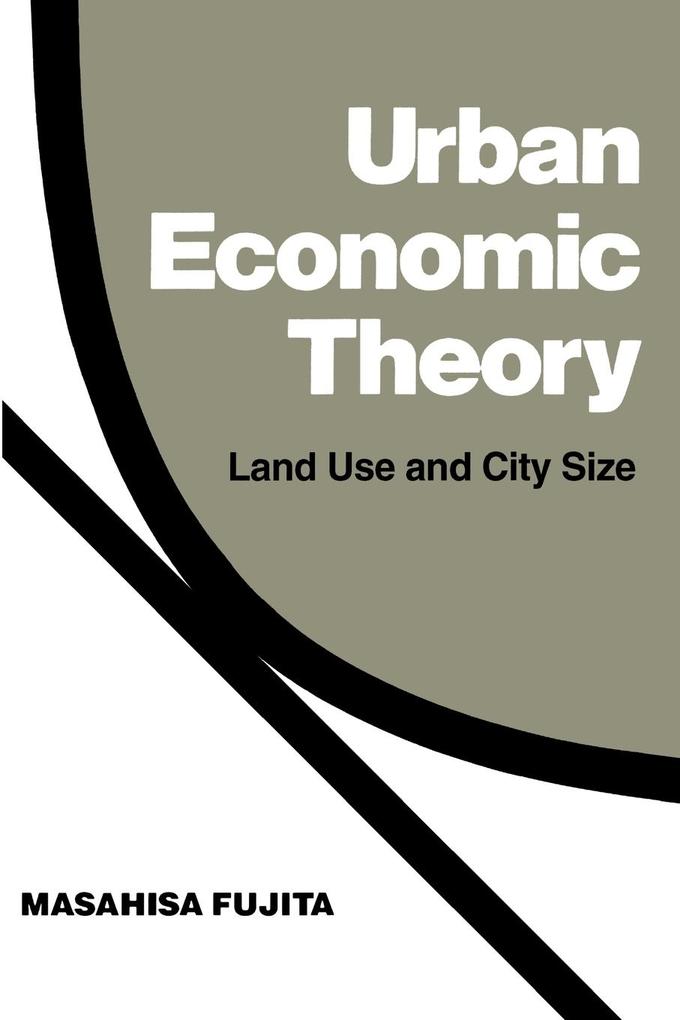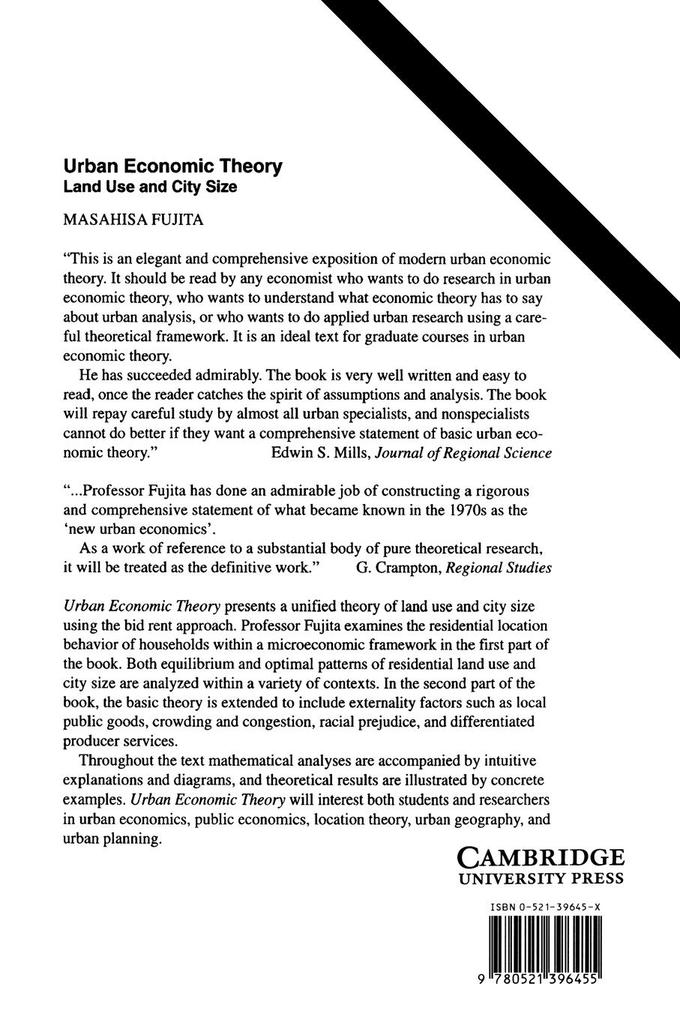Urban Economic Theory presents a unified theory of land use and city size using the bid rent approach. Professor Fujita examines the residential location behavior of households within a microeconomic framework in the first part of the book. In the second part of the book, the basic theory is extended to include externality factors such as local public goods, crowding and congestion, racial prejudice, and differentiated producer services.
Inhaltsverzeichnis
Preface; 1. Introduction; Part I. Basic Theory: 2. Locational choice of the household; 3. Equilibrium land use and optimal land use: single household type; 4. Equilibrium land use and optimal land use: multiple household types; 5. Urban aggregates and city sizes; Part II. Extensions With Externalities: 6. Local public goods; 7. Neighborhood externalities and traffic congestion; 8. External economies, product variety, and city sizes; Appendixes; References; Author index; Subject index.











